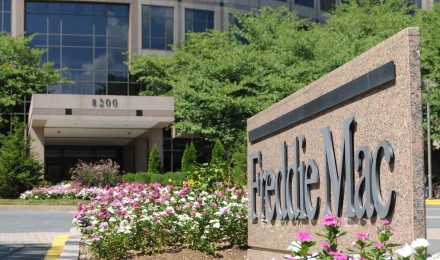The Mortgage Bankers Association (MBA) weekly survey shows that the volume of all mortgage applications, as measured by the Market Composite Index for the week ending July 27, 2012, rose 0.2 percent compared to the prior week — the highest level since June 8. The Market Composite Index has two components: the Purchase Index and Refinance Index.
Refinancing Activities
The MBA’s survey reveals an increase in refinancing activities, with the Refinance Index up 22 percent from the prior week. According to Mike Fratantoni, Vice President of Research and Economics for MBA, worry by investors about the domestic economy has help put downward pressure on interest rates.
Refinancing applications increased 0.8 percent compared to the prior week. However, the number of applications for government refinancing programs – FHA and the Home Affordable Refinance Program (HARP) dropped by 6 percent. Mortgage refinancing accounts for 80.1 percent of all mortgage applications submitted during the period measured by the MBA survey.
Record Low Interest Rates Fuel Refinancing
The average contract interest rate for the 30-year, fixed-rate mortgage –conforming loans of $417,500 increased from 3.74 percent to 3.75 percent. The 3.74 percent registered the prior week represents the lowest rate for this product in the history of the MBA survey. The average contract interest rate for jumbo loans – greater than $417,500, 30-year, and fixed-rate mortgage increased from 3.99 percent to 4.01 percent.
The average contract interest rate for FHA-insured mortgage remains at its lowest rate in the survey’s history at 3.52 percent.
Barriers to Refinancing
Even with increases in refinance activities, the overall effort by the Federal Reserve Board and the Obama Administration to help struggling homeowners take advantage of low interest rates and refinance into low interest loans continues to meet impediments.
Federal Housing Finance Agency (FHFA) revised the Home Affordable Refinance Program (HARP) was overhauled early this year to expand the program for borrowers with underwater mortgage. Many housing market analysts perceived the cap on loan-to-value (LTV) ratios at 125% as the main obstacle limiting the number of borrowers eligible to refinance under HARP. The FHFA eliminated the LTV cap requirement several months ago.
In a mid-July press release, FHFA director Edward Demarco says the HARP mortgage program has so far refinanced 78,000 more applicants than last year. Nonetheless, pronouncements from the large mortgage lenders, such as Well Fargo Bank of America and JP Morgan Chase, claiming they are working to full capacity and do not have the personnel to process the high volume of applications, have brought out critics.
Consequently, lenders have limited the processing of HARP refinance applications to their existing customers. This limits lenders liability in the event of default.
Another obstacle to refinancing involves the widening gap between bond yields and mortgage interest rates. Bond investors show a willingness to pay a premium for mortgage-bonds. This means investors believe mortgage refinancing has peaked. Therefore, buying bonds for more than face value is safe because many homeowners will not refinance from high interest mortgages to low interest loans.
The Mortgage Bankers Association (MBA) weekly survey shows that the volume of all mortgage applications, as measured by the Market Composite Index for the week ending July 27, 2012, rose 0.2 percent compared to the prior week — the highest level since June 8. The Market Composite Index has two components: the Purchase Index and Refinance Index.
Refinancing Activities
The MBA’s survey reveals an increase in refinancing activities, with the Refinance Index up 22 percent from the prior week. According to Mike Fratantoni, Vice President of Research and Economics for MBA, worry by investors about the domestic economy has help put downward pressure on interest rates.
Refinancing applications increased 0.8 percent compared to the prior week. However, the number of applications for government refinancing programs – FHA and the Home Affordable Refinance Program (HARP) dropped by 6 percent. Mortgage refinancing accounts for 80.1 percent of all mortgage applications submitted during the period measured by the MBA survey.
Record Low Interest Rates Fuel Refinancing
The average contract interest rate for the 30-year, fixed-rate mortgage –conforming loans of $417,500 increased from 3.74 percent to 3.75 percent. The 3.74 percent registered the prior week represents the lowest rate for this product in the history of the MBA survey. The average contract interest rate for jumbo loans – greater than $417,500, 30-year, and fixed-rate mortgage increased from 3.99 percent to 4.01 percent.
The average contract interest rate for FHA-insured mortgage remains at its lowest rate in the survey’s history at 3.52 percent.
Barriers to Refinancing
Even with increases in refinance activities, the overall effort by the Federal Reserve Board and the Obama Administration to help struggling homeowners take advantage of low interest rates and refinance into low interest loans continues to meet impediments.
Federal Housing Finance Agency (FHFA) revised the Home Affordable Refinance Program (HARP) was overhauled early this year to expand the program for borrowers with underwater mortgage. Many housing market analysts perceived the cap on loan-to-value (LTV) ratios at 125% as the main obstacle limiting the number of borrowers eligible to refinance under HARP. The FHFA eliminated the LTV cap requirement several months ago.
In a mid-July press release, FHFA director Edward Demarco says the HARP mortgage program has so far refinanced 78,000 more applicants than last year. Nonetheless, pronouncements from the large mortgage lenders, such as Well Fargo Bank of America and JP Morgan Chase, claiming they are working to full capacity and do not have the personnel to process the high volume of applications, have brought out critics.
Consequently, lenders have limited the processing of HARP refinance applications to their existing customers. This limits lenders liability in the event of default.
Another obstacle to refinancing involves the widening gap between bond yields and mortgage interest rates. Bond investors show a willingness to pay a premium for mortgage-bonds. This means investors believe mortgage refinancing has peaked. Therefore, buying bonds for more than face value is safe because many homeowners will not refinance from high interest mortgages to low interest loans.






